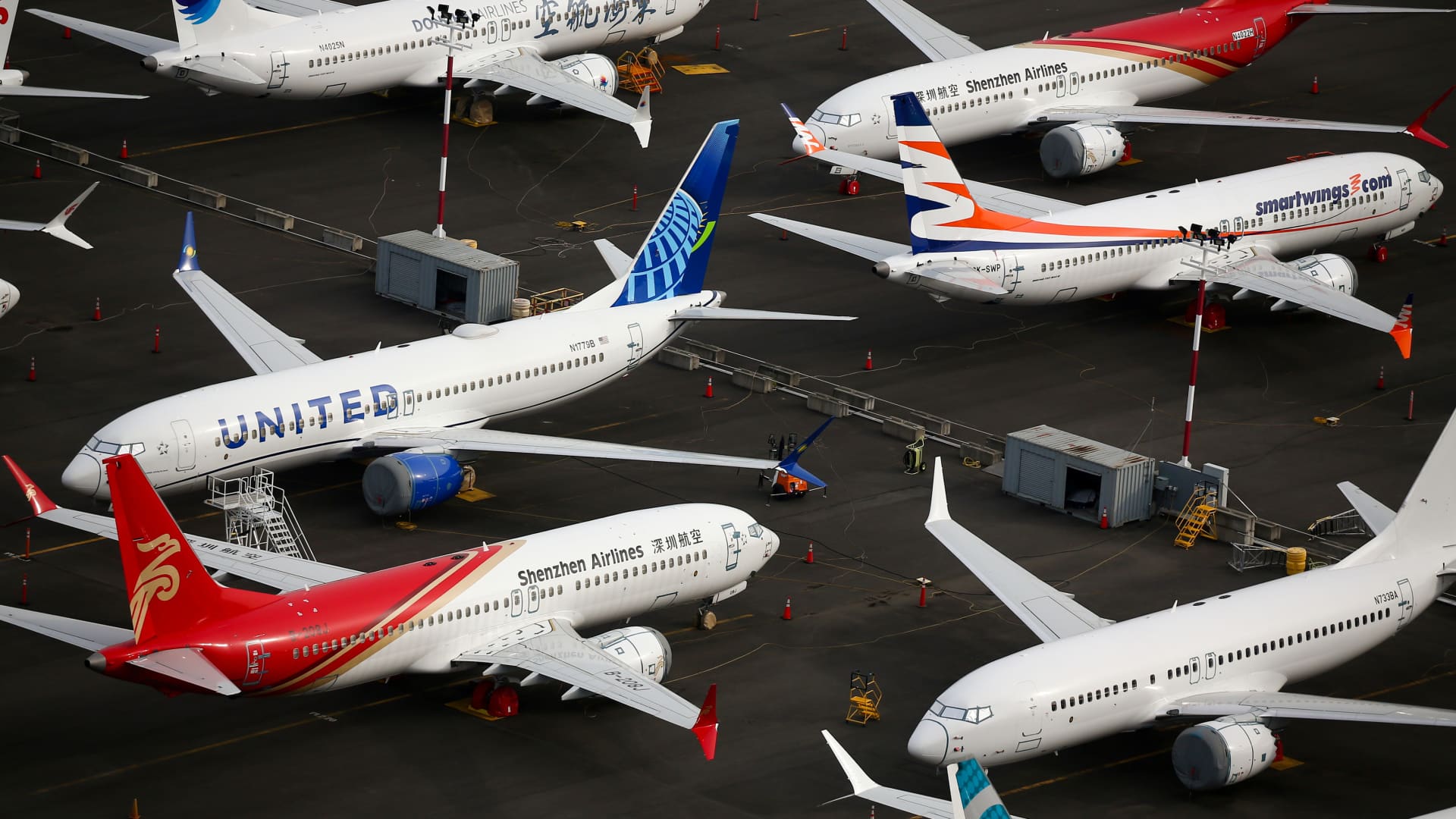Boeing CEO Dave Calhoun on Monday said the manufacturer won’t ramp up production of its best-selling 737 Max yet because of supply chain constraints.
The manufacturer is producing 31 of the Max planes each month on average, and Boeing will focus on stabilizing that rate before increasing output, according to Calhoun.
“Averages don’t work very well for customers; predictability does. We have to be at 31 every month, consistently and predictability,” he told CNBC’s “Squawk Box,” speaking from the Farnborough Airshow outside of London. “We’ll get into rate increases when we get into rate increases, but the supply chain isn’t ready for it yet.”
Calhoun spoke shortly after Boeing announced a Delta Air Lines order for at least 100 737 Max-10 planes, the airline’s first major purchase from the company in more than a decade. Deliveries are slated to begin in 2025.
Calhoun said longer-term constraints on aircraft production are from engine makers, like General Electric and Raytheon Technologies unit Pratt & Whitney. He said that will likely persist over the next 18 months.
“It is really difficult,” Raytheon CEO Greg Hayes said in interview with CNBC’s “Worldwide Exchange” earlier Monday.
Skilled labor is the hardest thing to come by, he added: “There are a lot of things we can’t get done because we don’t have the people.”
Hayes said he also expects the supply chain and labor shortage challenges to last into late 2023 or early 2024.
Boeing is scheduled to report second-quarter results on July 27.
